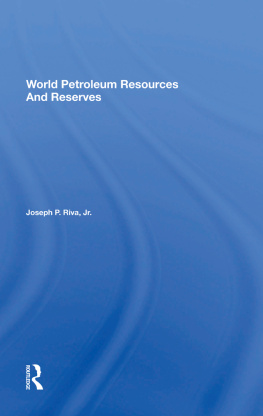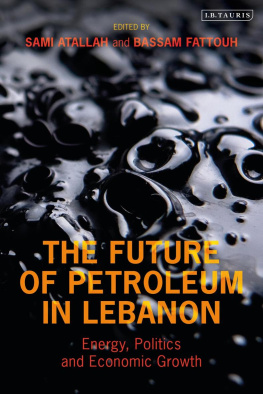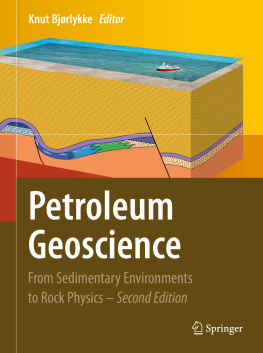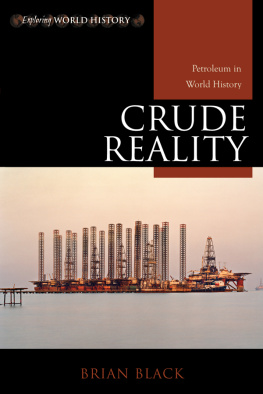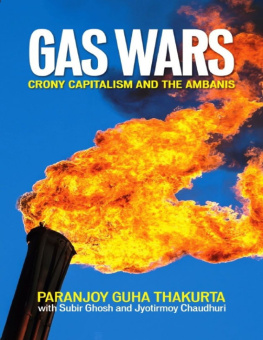World Petroleum Resources and Reserves
Also of Interest
Oil Strategy and Politics, 1941-1981, Walter J. Levy, edited by Melvin A. Conant
International Dimensions of the Environmental Crisis, edited by Richard N. Barrett
Critical Energy Issues in Asia and the Pacific: The Next Twenty Years, Fereidun Fesharaki, Harrison Brown, Corazon M. Siddayao, Toufiq A. Siddiqi, Kirk R. Smith, and Kim Woodard
Energy Futures, Human Values, and Lifestyles: A New Look at the Energy Crisis, Richard C. Carlson, Willis W. Harman, Peter Schwartz, and Associates, SRI International
Living with Energy Shortfall: A Future for American Towns and Cities, Jon Van Til
Transitions to Alternative Energy Systems, edited by Thomas Baumgartner
Alcohol Fuels: Policies, Production, and Potential, Doann Houghton-Alico
Energy Transitions: Long-Term Perspectives, edited by Lewis J. Perelman, August W. Giebelhaus, and Michael D. Yokell
OPEC; Twenty Years and Beyond, Ragaei El Mallakh
Indonesia's Oil, Sevinc Carlson
OPEC and Natural Gas Trade: Prospects and Problems, Bijan Mossavar-Rahmani and Sharmin B. Mossavar-Rahmani
Renewable Natural Resources: A Management Handbook for the Eighties, edited by Dennis L. Little, Robert E. Dils, and John Gray
Available in hardcover and paperback.
A Westview Special Study
World Petroleum Resources and Reserves
Joseph P. Riva, Jr.
Up to 1965 the world produced and consumed only 10 percent of the oil available on this planet; between 1965 and 2040 we will use up 80 percent of the remaining reserves, leaving only 10 percent of the resource for the years to follow. Clearly, the epoch of petroleum is a transitory one. Nevertheless, petroleum is at present the most important component of the energy base supporting the industrialized world. This book describes and analyzes the geological basis for the current world petroleum situation.
Mr. Riva explains the formation and accumulation of conventional and unconventional oil and gas, the methods used by geologists in the search for petroleum and petroleum-containing basins, and techniques for petroleum production. He then discusses the uneven distribution of the world's oil, focusing on the Arabian-Iranian basin, which contains half of the world's known recoverable reserves, and examines the petroleum prospects in several distinctly different areas of the world. The United States is presented as an example of an area in general decline, already exhaustively explored. In contrast, the case study of the Soviet petroleum industry and a geological assessment of Soviet production prospects show a region at the peak of its oil production, with its decline about to begin. He chooses Indonesia as the focus for a typical Southeast Asian petroleum history and develops a profile of Mexico's petroleum situation as an example of an area with increasing production potential. Mr. Riva concludes with an assessment of the prospects for future world petroleum discoveries and a geologically based estimate of the earth's total original stock of recoverable petroleum.
Joseph P. Riva, Jr., a geologist and specialist in earth sciences, is head of the Oceans Team at the Congressional Research Service of the U.S. Library of Congress (Science Policy Research Division). Among his numerous publications are Secondary and Tertiary Recovery of Oil and Energy from Geothermal Resources.
Illustrations by A. Susanne Riva.
First published 1983 by Westview Press
Published 2019 by Routledge
52 Vanderbilt Avenue, New York, NY 10017
2 Park Square, Milton Park, Abingdon, Oxon OX14 4RN
Routledge is an imprint of the Taylor & Francis Group, an informa business
Copyright 1983 by Joseph P. Riva, Jr.
All rights reserved. No part of this book may be reprinted or reproduced or utilised in any form or by any electronic, mechanical, or other means, now known or hereafter invented, including photocopying and recording, or in any information storage or retrieval system, without permission in writing from the publishers.
Notice:
Product or corporate names may be trademarks or registered trademarks, and are used only for identification and explanation without intent to infringe.
Library of Congress Cataloging in Publication Data
Riva, Joseph P.
World petroleum resources and reserves.
(A Westview special study)
Bibliography: p.
Includes index.
1. Petroleum. 2. PetroleumReserves. I. Title.
TN870.R53 1982 333.8'23 82-13625
ISBN 13: 978-0-367-21397-8 (hbk)
This book ends with a table that contains three numbers. The numbers represent a geologically based estimate of the earth's original stock of recoverable conventional petroleum, the product of 570 million years of natural processes. In the table, the total world ultimate recovery of conventional petroleum is estimated as 1,953 billion barrels of oil, 428 billion barrels of natural gas liquids, and 11,328 trillion cubic feet of natural gas. Estimates, of course, are always subject to modification as new information becomes available and new understanding evolves; however, we know enough about the world petroleum resource and its origins, migrations, and accumulations to put its magnitude into perspective.
The preceding numbers are large and have important implications. They indicate that the earth has been stocked with petroleum only for the short term. It took 109 years for the world's population to consume 200 billion barrels of oil; however, it took just ten years to consume the next 200 billion barrels. Twenty-two percent of total world oil stocks have already been consumed. World oil production is currently about 1 percent of the total world stock per year. If this level of production continues, the middle 80 percent of the world's ultimate oil supply will be consumed in about seventy-five years (the period between 1965 and 2040). World production is expected to increase, however, which will result in an even shorter "age of oil energy."
About 59 percent of the world's total oil has been discovered. More importantly, the remaining 41 percent will be even more expensive to find and recover. Already the capital costs per daily oil production in some areas of the North Sea are forty times the costs in the Middle East. Over 11,000 man-years are required to construct the largest of the North Sea gravity production platforms; the cost would exceed that of a nuclear power plant or oil refinery. The guyed tower constructed for oil production in 1,000 feet of water in the Gulf of Mexico will recover oil at about sixty-five times Middle East production costs. As oil production moves into the frontier basins in deeper waters or under Arctic ice, these costs will further escalate and be reflected in the world economy.
Natural gas has long been considered a nuisance by-product of oil production and often has been flared. For the past twenty years, however, rapidly increasing world gas reserves and the increasing price of oil have resulted in the recognition of gas as an extremely important energy resource. Because natural gas is more ubiquitous than oil in sedimentary basins, and past prospecting has concentrated on oil, the world's ultimate gas recovery may eventually about equal ultimate oil recovery (on a Btu basis). If this proves true, about 39 percent of the world's gas remains unaccounted for, but it probably exists in nonassessed basins, below Arctic permafrost, or below the oil window in deep basins, or it was bypassed by previous oil discoveries or flared during past oil production. The world stock of gas will last longer because the utilization of natural gas in volume lags behind the use of oil. If the use of gas approaches the use of oil on an equivalent energy basis, its length of service will be equally brief.



